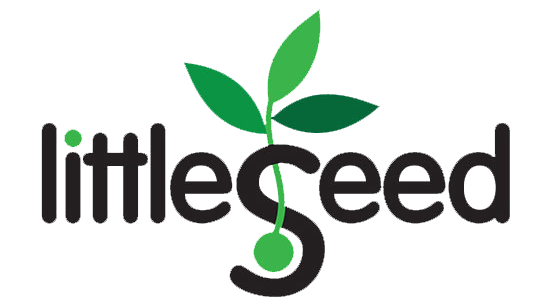Farming, flea beetle and the future
You may have seen that Rapeseed has had a lot of coverage in the news recently and has featured on BBC’s Countryfile over the last few weeks. We love it when our favourite crop is getting featured on the TV but unfortunately it hasn’t all been good news, as Countryfile’s presenter/farmer Adam Henson has been talking about the threat to the future of UK Rapeseed farming from a pest called flea beetle.
It’s true that the yield from the 2020 UK rapeseed harvest was down, so we wanted to talk a little bit about what that means for littleseed (as both rapeseed growers and oil pressers) and you the people who are buying and cooking with our oil.
So we’ve done a Q&A with our company director and farmer (who also happens to be called Adam!) to let you know what measures we’ve got in place and reassure you that littleseed will still be available for many years to come.
On Countryfile Adam Henson reported that the yield from his rapeseed harvest was down by so much that he was looking for alternative crops to grow instead.
How have things been at littleseed farm?
As Countryfile reported, oil seed rape has become increasingly more difficult to grow in the UK since Neonicotinoids (an insecticide) were banned. Our farm experiences the same challenges that those in the rest of the UK come up against.
We have grown oil seed rape on our farm for around 20 years and each year we come up against different challenges that can affect the yield of our harvest - flea beetle is just one of those.
What happens if you don’t grow enough rapeseed to make all the oil you need for littleseed?
Every year we buy in rapeseed from other farms and we have great relationships with those other growers to make sure we can continue to buy top quality rapeseed from them throughout the year.
We never try to grow all the rapeseed we need for our oil because as a farming business we need to spread the risk across different crops, something that Adam Henson discussed in the Countryfile reports. As well as oil seed rape we grow barley, wheat, grass and potatoes amongst others.
Why do you only use British rapeseed?
The first reason that we use British grown rapeseed is because we know that it will be GM free because it’s grown in the UK. That’s something that is really important to us.
Also buying from abroad would add to the carbon footprint of our product and it’s really important to us that littleseed remains an environmentally friendly and sustainable cooking oil.
Adam Henson explained to viewers on Countryfile (episode shown 25.10.2020) that he is planting Buckwheat alongside his oil seed rape to camouflage the crop from flea beetle and using treated sewage sludge to enrich the soil.
Are you doing anything like this at littleseed farm?
We adopt a range of cultural methods, including a minimum tillage method, where we leave stubble (the remains of a previous crop) in the seed bed to hide the oil seed rape crop.
We also use digestate, a nutrient-rich substance produced by anaerobic digestion that can be used as a fertilizer. The smell of digestate can act as a deterrent to flea beetle.
Our farm is also on an eight-year crop rotation, so we never grow the same thing in a field year on year. We do this to make sure nutrients are returned to the soil, to improve soil health and to increase biodiversity on the farm.
Will the price of a bottle of rapeseed oil go up a lot if less farmers are growing it?
This is a possibility but we’re confident that it will still always remain a much better value alternative to other high-quality Extra Virgin cooking oils.
Are you looking into other crops to grown on the littleseed farm? Adam Henson was looking at Linseed in his Countryfile report.
The landscape of our farm and the surrounding area is very unique because our soil is very chalky. This chalky soil means we have a smaller variety crops options available to us, but it is a great landscape on which to grow oil seed rape, a crop that won’t be giving up on any time soon.


